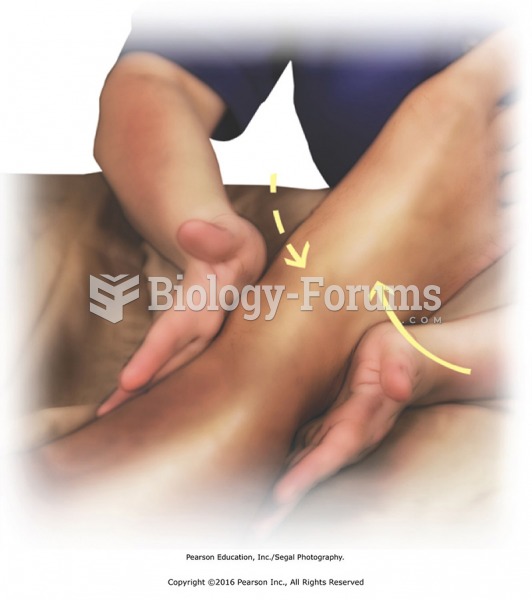|
|
|
Patients who cannot swallow may receive nutrition via a parenteral route—usually, a catheter is inserted through the chest into a large vein going into the heart.
Signs and symptoms of a drug overdose include losing consciousness, fever or sweating, breathing problems, abnormal pulse, and changes in skin color.
Critical care patients are twice as likely to receive the wrong medication. Of these errors, 20% are life-threatening, and 42% require additional life-sustaining treatments.
Adolescents often feel clumsy during puberty because during this time of development, their hands and feet grow faster than their arms and legs do. The body is therefore out of proportion. One out of five adolescents actually experiences growing pains during this period.
Medication errors are more common among seriously ill patients than with those with minor conditions.
 Place the tennis balls in a sock on the floor behind you, then lie with the middle of your thoracic ...
Place the tennis balls in a sock on the floor behind you, then lie with the middle of your thoracic ...
 Mobilize the ankle using the heels of the hands. Place the heels of the hands just under the ankle ...
Mobilize the ankle using the heels of the hands. Place the heels of the hands just under the ankle ...





